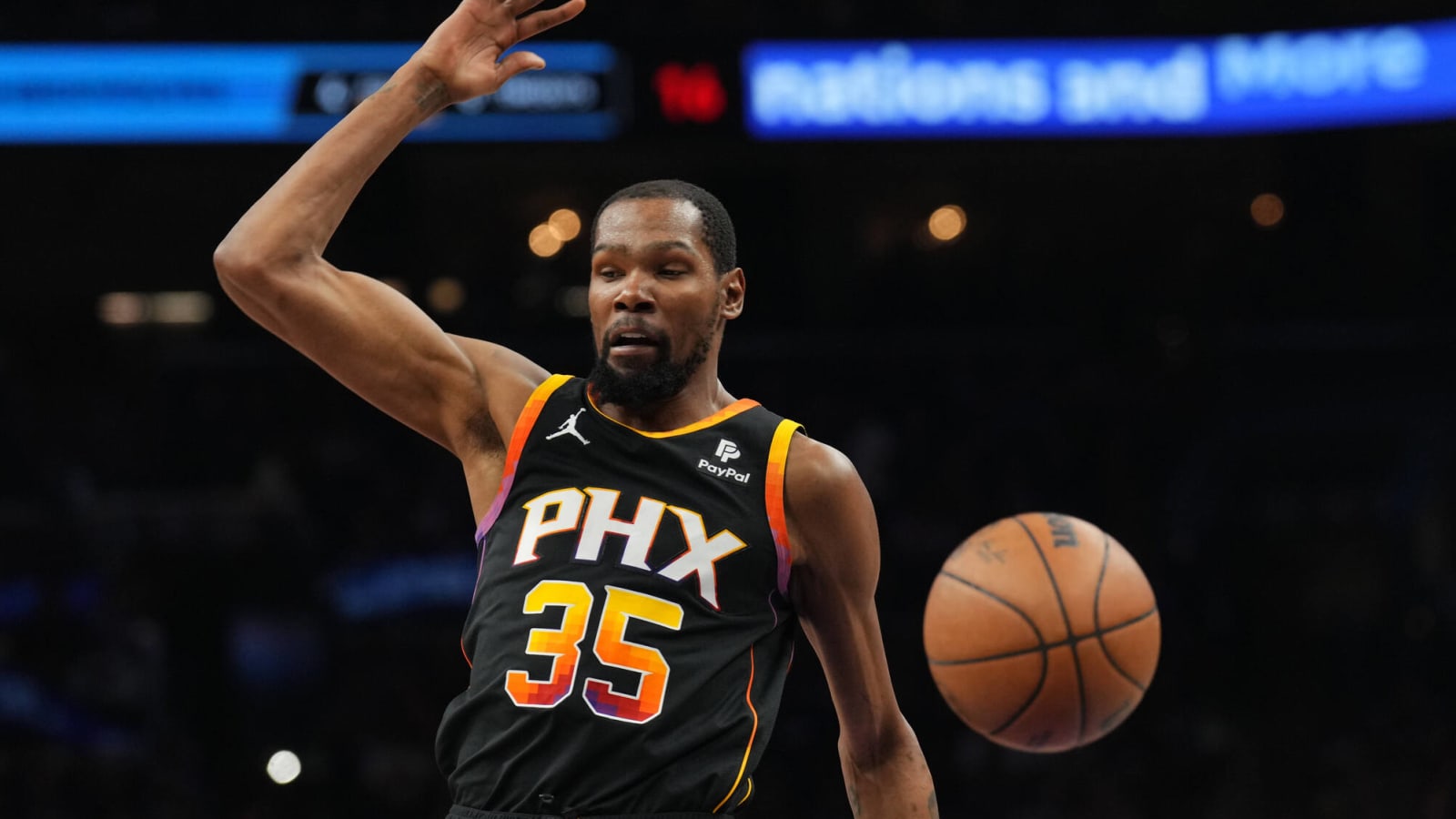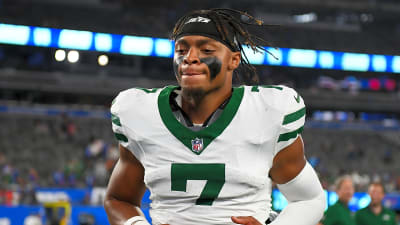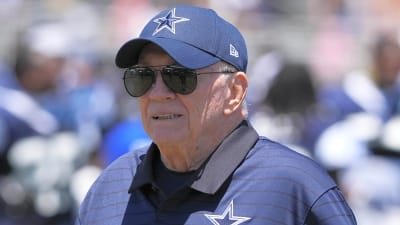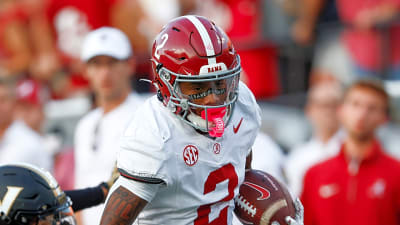
The five greatest scorers in every era between the 1950s and 2020s are named and yield some interesting results. Taking into account a player’s points per game average over a decade with at least 200 games played, every era has five players who dominate the scoring charts.
From the iconic Bob Pettit in the 1950s, Wilt Chamberlain in the 1960s, to Michael Jordan in the 1990s, and eventually Kobe Bryant and LeBron James, some of the best players of all time have accomplished greatness in the scoring charts and we have the breakdown.
Rule: Minimum 200 games played
1950s
1. Bob Pettit - 25.1 PPG (2 Scoring Titles)
2. Paul Arizin - 22.9 PPG (2 Scoring Titles)
3. George Mikan - 21.2 PPG (2 Scoring Titles)
4. Jack Twyman - 21.1 PPG (0 Scoring Titles)
5. Dolph Schayes - 19.7 PPG (0 Scoring Titles)
In the 1950s, basketball saw a blend of individual brilliance and team-oriented play, with players like Bob Pettit leading the charge as the era's premier scorer. Pettit's remarkable average of 25.1 points per game not only highlighted his scoring prowess but also underscored his versatility as a player. Standing at 6’9”, Pettit was a formidable force in the paint, utilizing an array of post moves and a reliable mid-range jumper to consistently put up points. His ability to dominate the boards further bolstered his impact on both ends of the floor.
Following closely behind Pettit was Paul Arizin, whose silky smooth jump shot became his trademark. Arizin's 22.9 points per game showcased his scoring efficiency to create scoring opportunities for himself within the flow of the game. His footwork and shooting touch made him a nightmare for defenders, often requiring double teams to contain his offensive output.
Despite nearing the twilight of his career, George Mikan continued to leave his mark on the game, averaging 21.2 points per game. Mikan's legacy as one of the pioneers of modern basketball was firmly established in the 1950s, as he showcased his dominance in the paint with his patented hook shot and imposing presence. His impact extended beyond scoring, as he also anchored the defense with his shot-blocking prowess.
Jack Twyman's inclusion in the top scorers of the era highlighted his skill to consistently put up points for his team. With an average of 21.1 points per game, Twyman's offensive repertoire featured a mix of perimeter shooting and driving to the basket, making him a versatile scoring threat. His basketball IQ and understanding of spacing allowed him to excel in an era where offensive schemes were still evolving.
Rounding out the list was Dolph Schayes, whose 19.7 points per game showcased his versatility as a forward-center hybrid. Schayes was known for his tenacity on the boards and tendency to score from anywhere on the court, whether it be in the post or from mid-range. His impact extended beyond scoring, as he was also a capable passer and team leader, earning the respect of his peers and opponents alike.
1960s
1. Wilt Chamberlain - 34.0 PPG (7 scoring Titles)
2. Oscar Robertson - 29.3 PPG (1 Scoring Title)
3. Jerry West - 27.9 PPG (0 Scoring Titles)
4. Bob Pettit - 27.8 PPG (0 Scoring Titles)
5. Elgin Baylor - 27.6 PPG (0 Scoring Titles)
The most dominant player ever, Wilt Chamberlain towered over his peers as the era's preeminent scorer, averaging an astounding 34.0 points per game. Chamberlain's scoring dominance was unparalleled, as he claimed an impressive seven scoring titles during the decade. Standing at 7’1”, Chamberlain's combination of size, strength, and athleticism made him nearly unstoppable in the paint, where he frequently overwhelmed defenders with his array of post moves and unparalleled finishing ability.
Following Chamberlain was Oscar Robertson, whose scoring prowess was matched only by his exceptional all-around game. Robertson averaged 29.3 points per game, showcasing his versatility as a scorer and playmaker. "The Big O," Robertson possessed a unique blend of size, skill, and basketball IQ, allowing him to excel both as a scorer and facilitator on the court.
Jerry West, despite not claiming a scoring title in the 1960s, solidified his status as one of the era's premier scorers with an average of 27.9 points per game. West's lethal jump shot and unmatched work ethic made him a constant scoring threat, as he routinely torched opposing defenses with his scoring prowess. His clutch performances in high-pressure situations earned him the nickname "Mr. Clutch" and cemented his legacy as one of the greatest players of the 1960s.
Bob Pettit, although in the twilight of his career, continued to showcase his scoring ability with 27.8 points per game. Pettit's fundamentally sound game and high basketball IQ allowed him to remain a dominant force on the offensive end, as he utilized his versatile skill set to score from anywhere on the court.
Rounding out the top scorers of the 1960s was Elgin Baylor, whose explosive scoring ability earned him an average of 27.6 points per game. Baylor's acrobatic drives to the basket and smooth mid-range jumper made him a nightmare for opposing defenders, as he consistently put up big numbers for the Los Angeles Lakers. Despite not capturing a scoring title, Baylor's impact on the game was undeniable, as he helped revolutionize the forward position with his scoring prowess and athleticism.
1970s
1. Kareem Abdul-Jabbar - 28.2 PPG (2 Scoring Titles)
2. George Gervin - 28.2 PPG (2 Scoring Titles)
3. Bob McAdoo - 26.8 PPG (3 Scoring Titles)
4. David Thompson - 25.1 PPG (0 Scoring Titles)
5. Jerry West - 24.6 PPG (1 Scoring Title)
The 1970s witnessed a diverse array of scoring talents, with Kareem Abdul-Jabbar and George Gervin leading the charge as the era's top scorers, each boasting two scoring titles. Kareem Abdul-Jabbar, known for his unstoppable skyhook shot, averaged 28.2 points per game during the decade. His dominance in the paint, combined with his unparalleled scoring efficiency, propelled him to two scoring titles and solidified his status as one of the greatest players in NBA history.
George Gervin, renowned for his smooth scoring touch and finger roll layups, also averaged 28.2 points per game. Gervin's effortless scoring ability earned him the nickname "The Iceman" and helped him claim two scoring titles during the 1970s. His creativity on the offensive end and knack for getting buckets made him a fan favorite and a nightmare for opposing defenses.
Bob McAdoo emerged as another scoring force in the 1970s, averaging 26.8 points per game and claiming three scoring titles. McAdoo's versatility as a scorer, coupled with his ability to stretch the floor with his outside shooting, made him a unique offensive threat and a key contributor for the teams he played for.
David Thompson showcased his scoring prowess with an average of 25.1 points per game, despite not capturing a scoring title during the decade. Thompson's explosive athleticism and scoring ability earned him a reputation as one of the most electrifying players of his era, as he dazzled fans with his high-flying dunks and acrobatic finishes.
Jerry West, although nearing the end of his career, remained a formidable scoring threat, averaging 24.6 points per game and claiming one scoring title in the 1970s. West's silky-smooth jump shot and clutch performances made him a respected figure in the league, as he continued to leave his mark on the game even in the latter stages of his career.
1980s
1. Michael Jordan - 32.8 PPG (3 Scoring Titles)
2. Dominique Wilkins - 26.1 PPG (1 Scoring Title)
3. Alex English - 26.0 PPG (1 Scoring Title)
4. Adrian Dantley - 25.6 PPG (2 Scoring Titles)
5. Larry Bird - 25.3 PPG (0 Scoring Titles)
The 1980s heralded the rise of iconic scorers, with Michael Jordan leading the pack with a staggering average of 32.8 points per game despite starting in 1985 with arguably the most impressive rookie campaign ever. Jordan's electrifying athleticism, combined with his unmatched scoring, earned him three scoring titles during the decade and established him as one of the most dominant forces in basketball history before he completely dominated the 1990s.
Dominique Wilkins, known for his high-flying dunks and explosive scoring prowess, averaged 26.1 points per game. Wilkins' dynamic offensive game earned him one scoring title and made him a perennial All-Star, captivating audiences with his aerial displays and knack for putting up big numbers.
Alex English showcased his scoring versatility with an average of 26.0 points per game and claimed one scoring title during the 1980s. English's smooth shooting stroke and ability to score from anywhere on the court made him a nightmare for opposing defenses, as he consistently filled up the stat sheet for the Denver Nuggets.
Adrian Dantley, known for his crafty footwork and scoring prowess in the post, averaged 25.6 points per game and claimed two scoring titles. Dantley's ability to draw fouls and convert from the free-throw line made him a constant scoring threat, as he used his physicality and basketball IQ to outsmart defenders and find ways to score.
Larry Bird rounded out the top scorers of the 1980s with an average of 25.3 points per game, despite not capturing a scoring title during the decade. Bird's exceptional shooting touch, court vision, and basketball IQ made him a lethal offensive weapon, as he played a pivotal role in leading the Boston Celtics to three championships and left an indelible mark on the game with his competitive spirit and clutch performances.
1990s
1. Michael Jordan - 30.3 PPG (7 Scoring Titles)
2. Shaquille O’Neal - 27.5 PPG (1 Scoring Title)
3. Karl Malone - 26.7 PPG (0 Scoring Titles)
4. Allen Iverson - 24.9 PPG (1 Scoring Title)
5. David Robinson - 23.6 PPG (1 Scoring Title)
The 1990s witnessed the unparalleled scoring dominance of Michael Jordan, who averaged an astounding 30.3 points per game and claimed an impressive seven scoring titles during the decade. Jordan's scoring prowess, combined with his unparalleled competitiveness and clutch performances, solidified his status as one of the greatest players in basketball history because he won six NBA titles and six Finals MVPs in this decade.
Shaquille O'Neal emerged as a dominant force in the paint, averaging 27.5 points per game and claiming one scoring title during the 1990s. O'Neal's combination of size, strength, and agility made him nearly unstoppable around the basket, as he imposed his will on opposing defenses with thunderous dunks and powerful post moves with the Orlando Magic and Los Angeles Lakers.
Karl Malone, known for his relentless work ethic and scoring efficiency, averaged 26.7 points per game despite not capturing a scoring title during the decade. Malone's ability to score in a variety of ways, including mid-range jumpers and finishes around the rim, made him a consistent offensive threat and a cornerstone of the Utah Jazz's success during the era.
Allen Iverson showcased his scoring prowess with an average of 24.9 points per game and claimed one scoring title during the 1990s. Iverson's electrifying speed, ball-handling skills, and scoring ability made him one of the most dynamic players of his generation, as he fearlessly attacked the basket and carried the scoring load for the Philadelphia 76ers before his dominance continued into the 2000s.
David Robinson rounded out the top scorers of the 1990s with an average of 23.6 points per game and claimed one scoring title. Robinson's combination of size, athleticism, and skill made him a dominant force on both ends of the floor, as he excelled as a scorer, rebounder, and shot-blocker for the San Antonio Spurs, leaving a lasting impact on the game with his versatile skill set.
2000s
1. Kobe Bryant - 28.5 PPG (2 Scoring Titles)
2. LeBron James - 27.8 PPG (1 Scoring Title)
3. Allen Iverson - 27.4 PPG (3 Scoring Titles)
4. Dwyane Wade - 25.4 PPG (1 Scoring Title)
5. Kevin Durant - 25.3 PPG (0 Scoring Titles)
The 2000s saw a new generation of scoring phenoms take center stage, with Kobe Bryant leading the charge with an impressive average of 28.5 points per game and claiming two scoring titles during the decade. Bryant's unmatched scoring ability, footwork, and competitive drive made him a nightmare for defenders, and was easily the replacement for Michael Jordan as the face of the league.
LeBron James burst onto the scene with an average of 27.8 points per game and claimed one scoring title during the 2000s. James' combination of size, athleticism, and basketball IQ made him a versatile scoring threat, as he attacked the basket with authority and showcased his ability to score from anywhere on the court early on in his career with the Cavaliers.
Allen Iverson continued to dazzle fans with his scoring prowess, averaging 27.4 points per game and claiming three scoring titles during the decade. Iverson's lightning-quick speed, ball-handling skills, and fearlessness allowed him to carve up defenses and even had an iconic 2001 MVP campaign which led to an NBA Finals appearance.
Dwyane Wade showcased his scoring prowess with an average of 25.4 points per game and claimed one scoring title during the 2000s. Wade's explosiveness, creativity, and ability to finish at the rim made him a dynamic scoring threat, as he led the Miami Heat to an NBA championship in 2006 and established himself as one of the premier shooting guards of his era.
Kevin Durant rounded out the top scorers of the 2000s with an average of 25.3 points per game, despite not capturing a scoring title during the decade. Durant's combination of size, shooting ability, and scoring versatility made him a matchup nightmare for defenders, as he consistently put up big numbers for the Seattle SuperSonics and later the Oklahoma City Thunder.
2010s
1. Kevin Durant - 27.7 PPG (4 Scoring Titles)
2. James Harden - 26.7 PPG (3 Scoring Titles)
3. LeBron James - 26.5 PPG (0 Scoring Titles)
4. Russell Westbrook - 25.0 PPG (2 Scoring Titles)
5. Stephen Curry - 24.3 PPG (1 Scoring Title)
Kevin Durant's combination of size, shooting ability, and scoring versatility made him one of the most unstoppable offensive forces in the league, as he consistently torched defenses with his scoring prowess.
James Harden emerged as another scoring juggernaut, averaging 26.7 points per game and claiming three scoring titles during the 2010s. Harden's unique blend of scoring ability, ball-handling skills, and drawing fouls made him a constant threat on the offensive end, as he utilized his crafty moves and deep range to put up big numbers for the Houston Rockets and later the Brooklyn Nets.
LeBron James continued to showcase his scoring prowess with an average of 26.5 points per game, despite not capturing a scoring title during the decade. James' combination of size, athleticism, and basketball IQ made him a versatile scoring threat, despite the fact that he was the primary playmaker for mainly the Heat and Cavaliers.
Russell Westbrook's relentless attacking style of play earned him an average of 25.0 points per game and two scoring titles during the 2010s. Westbrook's combination of speed, athleticism, and aggressiveness allowed him to rack up points in transition and attack the rim with ferocity, making him one of the most explosive scorers in the league and his iconic 2017 MVP campaign still holds up today.
Stephen Curry rounded out the top scorers of the 2010s with an average of 24.3 points per game and one scoring title. Curry's revolutionary shooting ability and off-the-dribble scoring prowess transformed the game of basketball, as he redefined the role of the point guard and became the face of the Golden State Warriors dynasty, captivating audiences with his jaw-dropping shooting displays and leading his team to three NBA championships in the decade.
2020s
1. Joel Embiid - 31.5 PPG (2 Scoring Titles)
2. Luka Doncic - 30.3 PPG (1 Scoring Title)
3. Giannis Antetokounmpo - 29.8 PPG (0 Scoring Titles)
4. Kevin Durant - 28.2 PPG (0 Scoring Titles)
5. Stephen Curry - 28.1 PPG (1 Scoring Title)
The 2020s introduced a new era of scoring excellence, led by Joel Embiid, who averaged an impressive 31.5 points per game and claimed two scoring titles during the decade. One of the most talented offensive centers of all time, the only thing in Embiid’s way is his concerning injury history.
Luka Doncic has emerged as another scoring sensation, averaging 30.3 points per game and capturing one scoring title during the 2020s. Doncic's basketball IQ, court vision, and scoring versatility made him a dynamic offensive threat, as he utilized his crafty moves and deep shooting range to put up big numbers for the Dallas Mavericks and he just claimed his scoring title in 2023-24 (33.9 PPG).
Giannis Antetokounmpo showcased his scoring prowess with an average of 29.8 points per game, despite not capturing a scoring title during the decade but winning an NBA title and Finals MVP award. Antetokounmpo's combination of size, athleticism, and aggression allowed him to dominate in the paint and finish above the rim with authority, making him one of the most unstoppable scorers in the league.
Kevin Durant continued to establish himself as one of the premier scorers in the NBA, averaging 28.2 points per game during the 2020s. Durant's combination of length, shooting ability, and scoring versatility made him a matchup nightmare for defenders, as he consistently put up big numbers for the Brooklyn Nets and Phoenix Suns and solidified his status as one of the greatest scorers of all time.
Stephen Curry rounded out the top scorers of the 2020s with an average of 28.1 points per game and one scoring title. Curry's revolutionary shooting ability and off-the-ball movement made him a constant threat on the offensive end, even if he was in his 30s and slowly coming to the end of his career.
More must-reads:
- Report reveals how hard Warriors tried to trade for LeBron James
- Malik Beasley no longer target of federal investigation
- The '2024-25 NFL rushing touchdown leaders' quiz
Breaking News
Trending News
Customize Your Newsletter
 +
+
Get the latest news and rumors, customized to your favorite sports and teams. Emailed daily. Always free!








